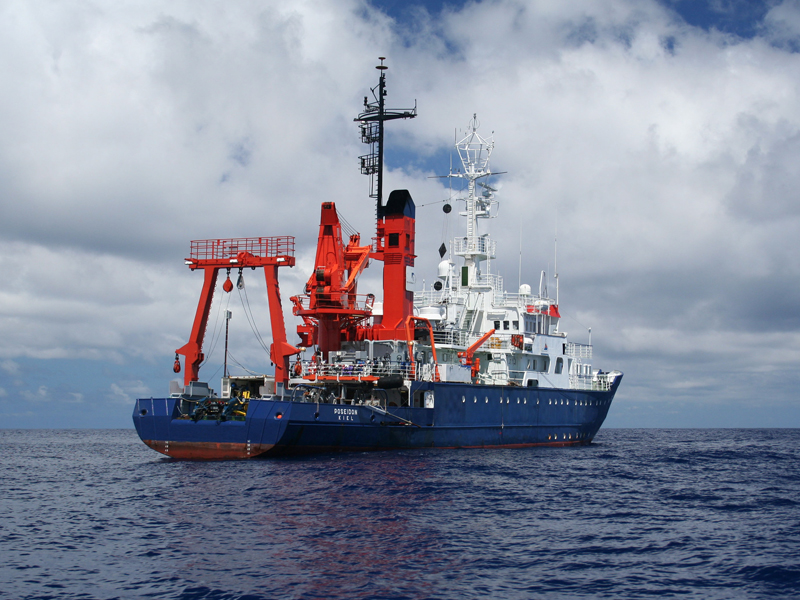POSEIDON POS403
- Area:
- MOR
- Time:
-
14.08.2010 - 30.08.2010
- Institution:
- IFM-GEOMAR
- Chief scientist:
- Torsten Kanzow
The 403rd cruise of the German research vessel POSEIDON (14 August to 30 August 2010) starts and ends in Pta Delgada (Azores). The aim is to better understand the relation between plate tectonics and the thermohaline circulation.
Vertical mixing associated with dissipation of turbulent kinetic energy sustains the circulation and ventilation of the deep and abyssal ocean. New evidence is emerging that the highest mixing rates (i.e., diapycnal diffusivities) are found within the central valleys and ridge flank canyons of mid-oceanic ridge systems. This implies that plate tectonics and the thermohaline circulation have a close and small-scale interaction. “Classical” oceanographic and marine-geologic measurement techniques are not ideally suited to study this interaction, as they cannot be used near the sea floor. Therefore during this expedition the scientists conduct near- bottom oceanographic and marine-geologic measurements using the autonomous underwater vehicle (AUV) ABYSS, complemented by the classical techniques. Chief scientist is Torsten Kanzow (Leibniz Institute of Marine Sciences IFM-GEOMAR).



